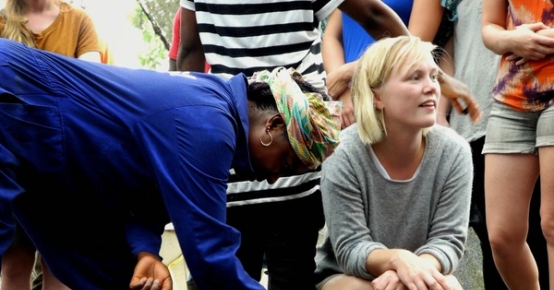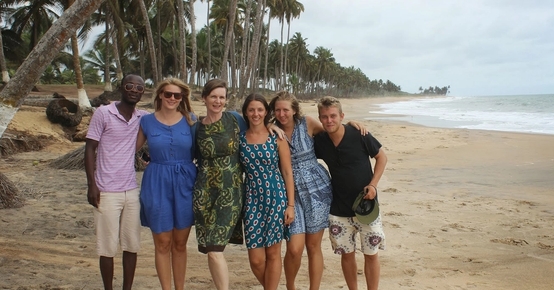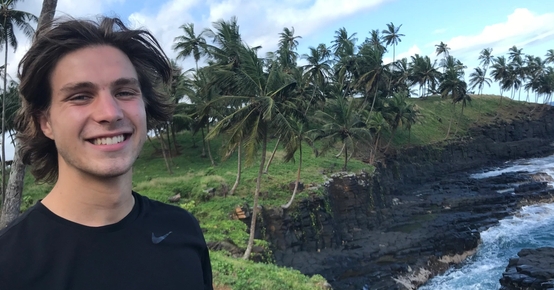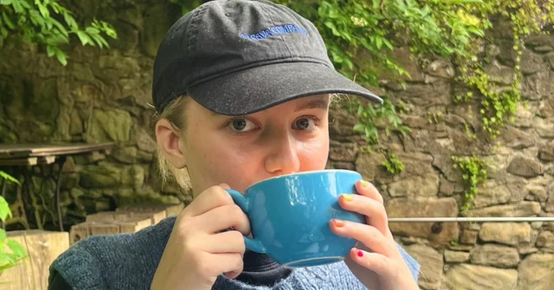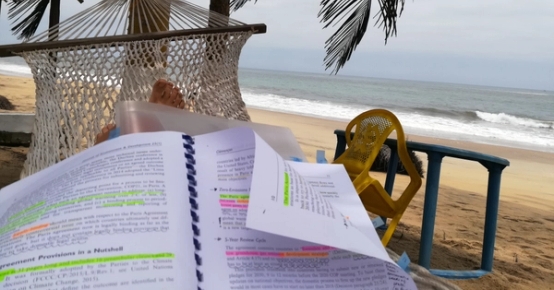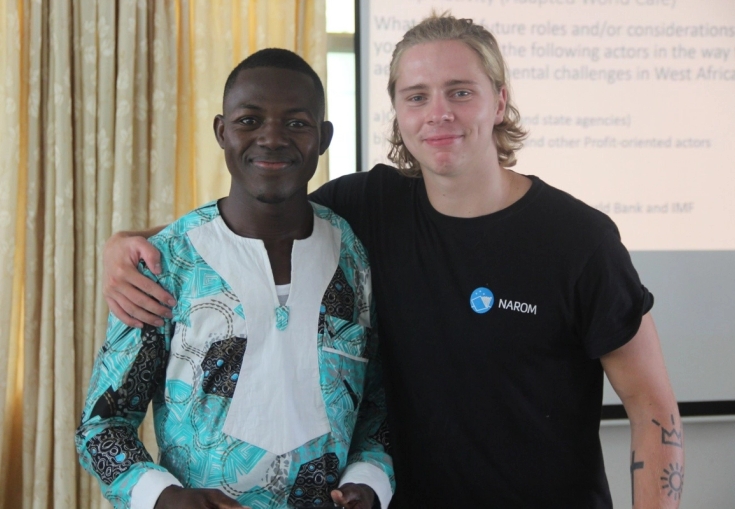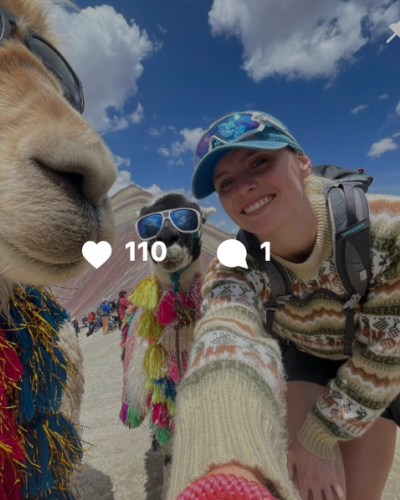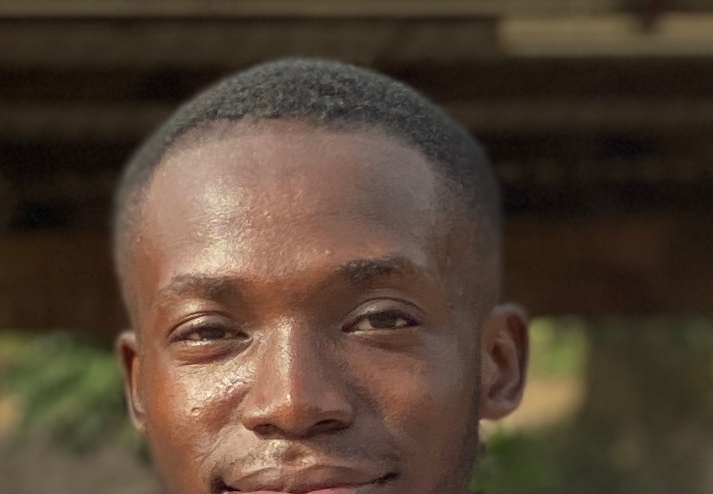
"During the field research period, I developed a sense of advocacy"
Kelvin (23) looks back on his semester as a scholarship student with Kulturstudier in Cape Coast, Ghana.

Are you a Ghanaian national and interested in development studies? Each spring, Kulturstudier welcomes a select few local students to join our Scandinavian students for our exciting programme in Cape Coast.
Kelvin was one of the chosen students in spring 2025:
– I first found out about the Kulturstudier scholarship opportunity through a notice posted on the University of Ghana's Geography & Resource Development department’s notice board, which I frequently checked anytime I passed by.
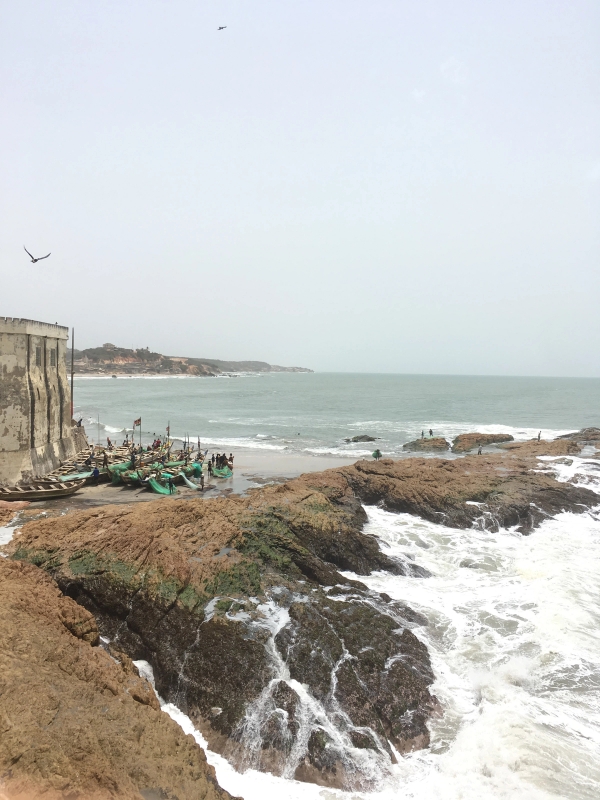
– I took a photo of the notice because I was intrigued. At that time, I had also just completed my mandatory yearlong National Service and was wondering what would be next for me.
The course we offer in Cape Coast is called Development studies 2. To be eligible for this course, you must have completed one semester of development studies, or one year of university studies in Social Sciences.
– I had already completed a Bachelor of Arts degree in Geography & Resource Development and Archaeology from the University of Ghana when I applied.
At first, I was a bit skeptical about applying, but was reassured after contacting the listed e-mail address on the notice. Feeling encouraged, I decided to have a go at it. I worked on the required essay, submitted my application and was fortunately invited for an interview.
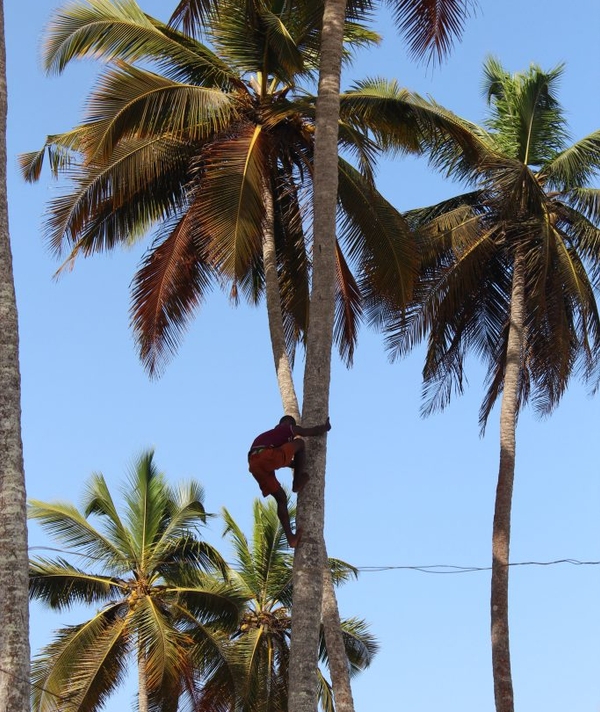
– The first few weeks of lectures covered topics that were familiar to me as a Ghanaian geographer. However, in the subsequent weeks, I encountered new and fascinating concepts.
Green growth was one of such concepts that intrigued me. Additionally, the seminar leaders, Hanna and Jørgen, made a significant impact with their dedication during seminars.
They were patient, interactive and welcoming of all ideas. Outside of class, they were always calm and friendly to all students.
Joining Kulturstudier as a scholarship student will inevitably lead to some novel experiences as you get to know the Scandinavian student group and learn about their culture:
– I was stunned by the individualistic nature of some of the Scandinavian students, which sometimes made offering them help challenging.
During discussions with some students, I realized it was a cultural norm and that individualism is more acceptable in Scandinavia.
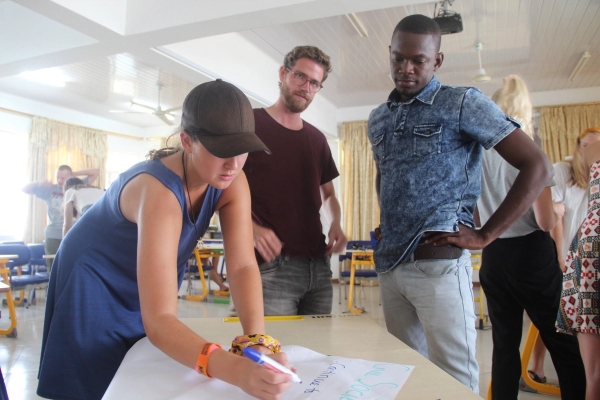
One of the most important and appreciated aspects of our programmes for our Scandinavian students is having the opportunity to view one's own culture from the outside.
The mix of local and foreign students make for more interesting discussions in the classroom, and also for interesting and fun conversations outside of class as students get to know each others' cultures:
– I learned that greeting or talking to strangers on the street is considered unusual in Norway, which was strange to me. How do you ask for directions to a place if you are lost?
In Ghana, it is rather inappropriate to pass by someone without greeting. Sometimes, these strangers might offer helpful insights.
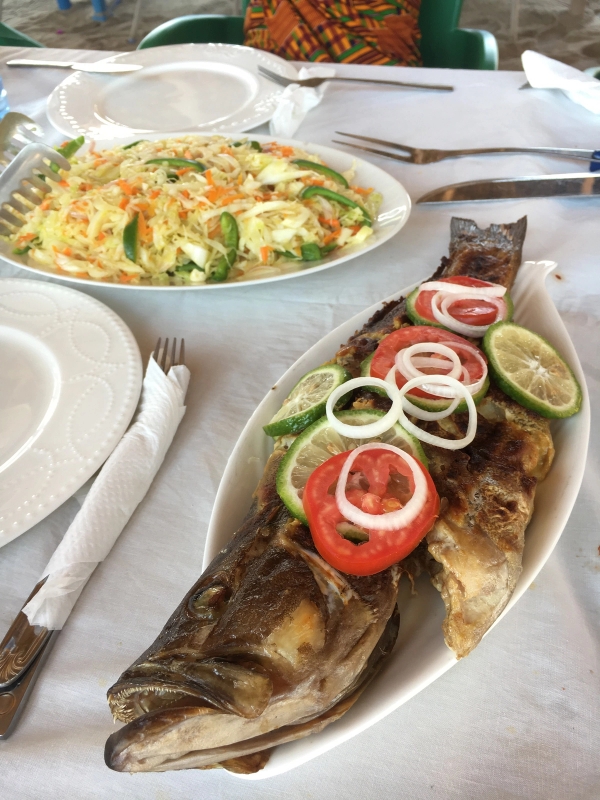
– I also found it interesting that Scandinavians preferred food from other cultures. I tried some of the meals the students prepared, and they were quite enjoyable.
Another thing that I observed was that they tend to avoid very bright clothing; “it would feel awkward to be in such clothing,” some said.
I joked that one person could spark a fashion revolution in Norway by wearing something vibrant, but they sadly declined. They preferred to wear darker colors, which I explained were associated with funerals in Ghana.
Lastly, the Scandinavian students are very open about their feelings, whereas Ghanaians, while open, reserve some utterances for home.
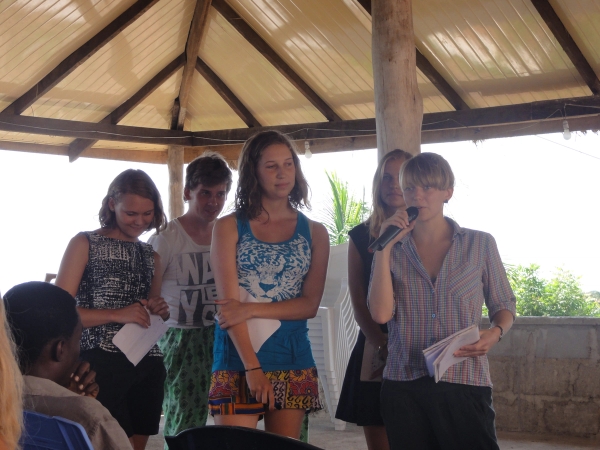
In the Development studies 2 course, students spend three weeks doing field research which culminated in a report on the group's chosen topic.
Getting hands-on experience with important developmental issues is one of the most unique aspects of this programme, and can be of great importance to you in your future endeavors.
– During the field research period, I developed a sense of advocacy that I would like to explore further.
– The future is very bright for me as I feel I have many paths ahead.
I had already declined an offer of admission from one of Ghana’s top schools when I chanced on the Kulturstudier notice. That decision was partly financial, as well as driven by my desire to enter the work environment and explore the way forward.
Now, I hope to finally complete some applications, further my studies, travel the world and contribute to making the world a better place!
Not a Ghanaian national?
We also offer scholarships to Vietnamese, Argentinian, Nepali, and Costa Rican students!

